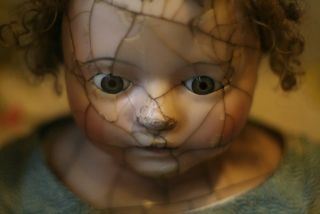Post-Traumatic Stress Disorder
A Complex PTSD Diagnosis: What a Relief
A Personal Perspective: Complex PTSD makes sense for me.
Updated March 10, 2024 Reviewed by Abigail Fagan

I’m dealing with Complex Post Traumatic Stress Disorder. What a relief. Insert ironic smile. My counsellor, Hard-Ass Andie (you can read about her here on another Psychology Today post I wrote), and I have realized this.
Unlike my bipolar disorder, a diagnosis that was, for me, unwanted, C-PTSD has come as a relief. It makes sense of all the times I feel my insides are on my outsides. When I feel like a different person from a different time (a 5-year-old in 2023 instead of the 56-year-old woman I am). The relief comes because I finally have a language for it and a landscape I can learn to navigate. It redeems me. It explains why years of earnest talk therapy and self-help haven’t touched the intractable elements of my system.
Flashbacks. Body memories I call them. They sneak up on me, take me by storm, run roughshod over my day to a point where the majority of the time I’m just trying not to fall apart. Trying not to succumb to the pit in my stomach, lack of air in my lungs, the Saran wrap of tension that drips in the walls around me. Don’t succumb to the ghostly panic in my shoulders, between my ribs, on the soles of my feet. Push against that pull. It has me hunched over, folded like an envelope on my bed, then collapsed in front of my computer screen scrolling for reasons to prove that I’m not a mistake.
Aren't flashbacks visual? Like snapshots of memories exploding in your mind like that one of the bombs going off, or of the nightly visit of that uncle. No, they are body remembrances too. Just as real. But they have no words, no images, sometimes not even emotions. Sharp sensations trapped from another reality existing in this one.
Below is part of my story. There’s more, of course, to be written later. Maybe some of it will feel familiar to you. Maybe not the circumstances, but the feelings. It’s meant as a message to say: You’re not alone. Please reach out. Get Help.
It’s winter. I’m three or four. Maybe? “Wheee!”
I see my safe place at the end of the dirty rope — dad yanks me around in circles, zig-zags like a rollercoaster. Snow puffs into my face like glitter from a fairy. “Haahhhaaaah-eewww”. I got drippy snow in my mitts. But I don’t care — the blue plastic bathtub I’m in is a magic carpet pulled by my safe place.
This might not be a memory. It might be that photograph I’m thinking of. But the cold, the wet thick snow, the sizzling tingle of melted snow in my mittens is so real. And I am smiling. Laughing, giggling, three-year-old-laughing.
I have other memories. I can sort of feel them. But few feel happy even when I know they should be. Oh yeah — that one: I’m rolling around on the carpet, the one we got from Grandma after she died. I’m 7 in our North Van house. Dad and me are playing ‘Rock the Boat’. Dad’s the boat and I’m the pirate trying to stay aboard a rocky ship. I’m lying on top of him. I never can. Stay. That is.
I know there's something wrong in my house. Rage shrapnel always flying: Mom slams cupboards, drawers, doors. Screaming at my dad, railing at him like he’s God. Like she is Job who never gets a break. “You make my life a living hell!!’ she screams over and over. Every day so eventually the neighbors stop visiting and friends don’t invite them for nights out and my dog cowers under the table or in another room.
Then splat. Tucked in her coffin bed, she’s weeping, telling me she wishes she were dead. It happens over and over again. School nights, weekends, Sundays are the worst. There’s nowhere to go. I have no friends. No siblings. Just Checkers, our maladjusted Sheltie. Don’t feel sorry for me. It’s just the way it is.
And dad (I make him my safe place, but it’s a poorly constructed one at best). He’s lying in his bed (in a room separate from my mom), a silent tiger wound tight, ready to pounce. He yells whip-like around me and the whole house and I disappear.
To be continued.


